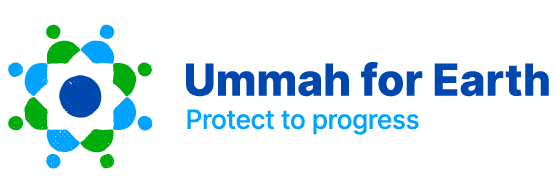
Beirut, Lebanon, Tuesday 12 April 2022: If countries are to achieve effective climate action at a global level, COP27 and COP28 climate negotiations must include the most vulnerable communities across faiths, like women and youth, said faith groups during the MENA climate week in Dubai.
Organised by ACT Alliance and Ummah For Earth, the side event “Multi-sectoral, multi-stakeholder engagement for effective climate action” was held on 30th of March 2022 at Atlantis Hotel – Palm Dubai. Speakers included Tarek Al Olaimi (ally of Ummah for Earth), Ines Belliard (Global One), Dani El Obeid (ِACT Alliance, Lebanese University), and Devar Sher (ACT Alliance), and was facilitated by Julius Mbatia (ACT Alliance).
The event provided the opportunity for Muslim and Christian faith actors to reflect on possible solutions and pathways to strengthen multi-sectoral and multi-stakeholder engagement for effective climate planning and action. It also helped to identify the gaps to be filled in order to enhance multi-stakeholder and multi-sectoral approach, including the lack of youth, gender and faith inclusion in climate policy and decision making.
Tarek Al Olaimi, ally of Ummah for Earth, said: “Climate change represents one of the most urgent global challenges we are facing today. In order to tackle its impact, there is a need for a whole economic and governmental approach that contributes to low carbon, climate resilient and sustainable economies in MENA. Youth and faith actors need to be brought to the decision table every day, in order to include them in sectoral planning, prioritisation, and policy frameworks.”
Ines Belliard of Global One said: “Taking this approach is important now more than ever. It aligns the objectives and resources of all the actors. It is a Holistic approach that reduces bias and engages youth to create awareness”.
Devar Sher of ACT Alliance said: “We need to take a step back and take a snapshot of the MENA countries, specifically where armed conflict remains a living hell. We can’t expect conflict-affected communities to be aware of the climate hazards. The MS-MS approach must have the people’s awareness at the heart of its activities and making everyone understand what a crucial role we have to fix the climate crisis.”
Dani El Obeid of ACT Alliance and the Lebanese University said: “I think what is needed are long term and clear projects upon which everyone can hop together and maintain. What is meant here is that if all are focusing on clear targets such as reducing single use plastic or increasing green spaces or moving to renewable energy as a community then maybe we can chop down the overwhelming task of combating climate change by taking smaller steps”.
Whilst all economic sectors are affected by climate change and productivity continues to be compromised – deepening levels of economic instability and poverty – responses within and across sectors are not effectively coordinated, hindering wins in the fight against climate change.
The speakers highlighted the need for better coordination in order to achieve an overall transformation of societies at economic and governmental levels. They focused on the role of faith communities in terms of filling the gaps between different sectors, organising and responding to specific needs in planning and action.
End
Note to Editors:
Links:
Links:
Links:
https://www.greenpeace.org/mena/en/
Contact:
Ahmad Hammoud
Global comms Lead – Ummah for Earth project
